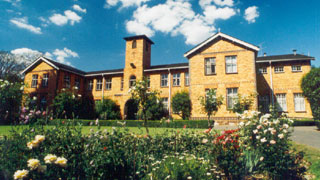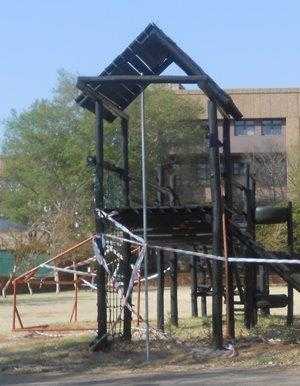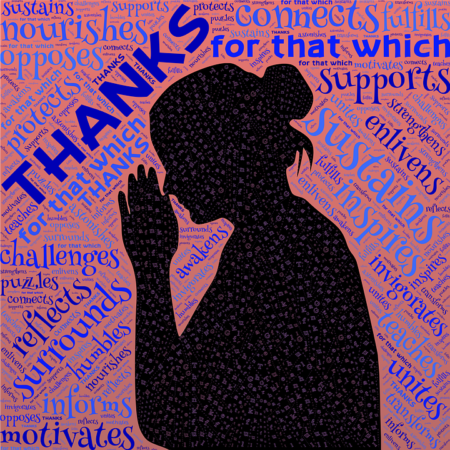A South African Perspective
We, the Sisters of Mercy of the Congregation living in Soweto, came together to express what we observed during these early months of COVID-19 entering South Africa. Our focus comes especially from the township known as Soweto, an area in southern Johannesburg. Our participation in the ministries of parish work and primary and secondary education will certainly give us a perspective not necessarily shared by others in other areas and other ministries.
President Ramaphosa declared South Africa as being in Lockdown (Alert Level 5) on the 26th March, 2020.
 St. Teresa’s Convent, Rosebank
St. Teresa’s Convent, Rosebank
One of the regulations set in place by the President of South Africa was that individuals were not to cross from one geographical province to another “with the exception of those involved in the production, distribution and supply of food and basic goods” etc. The Sisters living at St. Teresa’s Convent in Rosebank had scheduled a retreat for the beginning of April and invited any Sister to join them. The retreat was especially set for Sisters who found it difficult to travel. This retreat was cancelled because the priest giving the retreat was unable to cross over from one geographical province to another.
Who would ever think that we would not be going to church services during the Easter Triduum Rituals? It was decided that all church activities were to be suspended. This was an extremely difficult time for our parish of Regina Mundi, Soweto. Many people find the parish to be their primary community. Most of the women of the parish belonged to a sodality. Their time of being together was of the essence. After all the masses, people stay around and visit with one another. All gatherings were suspended and this was a great loss especially for those who live alone.
Because we were not going about our ministries, and because we tried our best not to go out of the house, we chose to have a holy hour every day praying especially for those with COVID-19 and their family members. We continued this throughout levels five, four and three of Lockdown. We regret that we cannot visit the prisons and hospitals. So many of the people in these institutions have no one to visit them.
A painful outcome of the Lockdown has been an increase in gender based violence. In South Africa, it is estimated that cases of femicide occur every three hours. With people told to “stay home”, there was a direct correlation with the increase of gender-based violence. It is understandable when one is in a family home with possibly 10 or 12 relatives that tempers can flare.
 Playgrounds are closed
Playgrounds are closed
How can people keep a social distance when you have five or six individuals living in such a small area? The children, especially, don’t understand why suddenly, they can’t go out and play with their friends. This is a good example of the “haves” and “have nots”. Those children who live in more affluent areas were able to spend quality time in the house. The families had television and computers to occupy the children. They also had many other luxuries such as books, games, puzzles, and hobbies such as crafts, baking, swimming, dance. The children living in an impoverished area had what they always had, playing outside with their friends.
This poverty gap was made more apparent when the children from more affluent homes could do online learning and those from more needy families don’t have computers, television or other technical devices. Others who might have a computer don’t have money for data. The amount of learning that an individual student receives in this situation depends on the wealth of the family. Education is not equal by any means.
One big issue is the taxi (mini bus) industry. Taxi drivers want to fill their vehicles with as many people as they can. They ignore the social distancing regulation. Taxi drivers are also supposed to give sanitizer to each passenger and everyone in the taxi must wear a mask. These regulations are not being adhered to, which is of concern to the passengers. It is especially worrisome for parents who have children using a taxi to get to school.
 Sandwiches ready for distribution
Sandwiches ready for distribution
Every day we have individuals coming to our convent door asking for food. The vast majority of them are male … the middle-aged men are unemployed; many of the younger men are on Nyaope (a street drug commonly found in South Africa, is a mixture of low grade heroin, cannabis products and antiretroviral drugs). The women are usually carrying one child and another two toddlers are standing behind her holding hands. Since the onset of the coronavirus we have had double the number of people at the door. Many of the “new” people tell us they are on ARVs and can’t take their medication without having eaten something.
It isn’t unusual that we have water and electricity “outages”. The electricity outages are usually five hours in duration… however, some areas have been without electricity for ten days. We are fortunate that we have the money to buy battery operated lanterns. Those who are needy have no such opportunities. They look for tree branches and other items they can use for heating and light. This is just one more area where the differences between the haves and the have nots is so obvious.
In our schools in Soweto, we have anywhere from 40 to 42 students in every homeroom class. It is impossible to keep the learners at a required distance in the classrooms. Some of the classes are being taught twice in order to provide a safe environment for the learners.

One of the blessings of this pandemic is that it has brought out the best in many people. Many of those who “have” are reaching out to the needy when they become aware that there are people without work and without the means to provide the necessities for their families.
There has been no proof that there is a correlation between the stresses and the inability to provide the necessities for a family but the indications are that mothers are finding it increasingly difficult to raise children in these circumstances.
We are so aware that we are fighting, not one, but three pandemics – COVID-19, poverty and gender based violence. In the future, how will these months have changed our lives, our values and our choices? What will we have learned?
Marla Yeck rsm
South African Province


